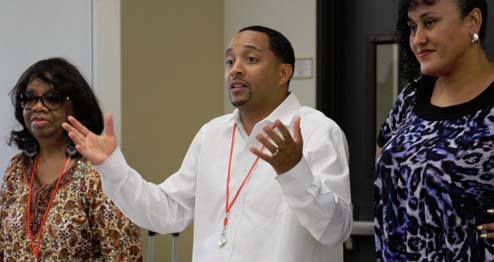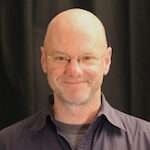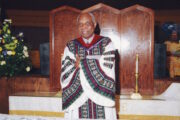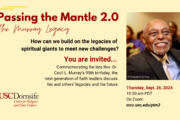In one of the most electrifying moments in “Eyes on the Prize,” the documentary about the civil rights movement that aired on PBS in 1987, an African-American teenager named Jimmy Webb tries to persuade a Selma police officer to let him pray on the lawn of the city’s courthouse. When the officer, L.C. Crocker, makes it clear he’s not open to persuasion, Webb asks, “Well, sir, can we pray together, you and I?”
“You do your praying, I do mine, big boy,” Crocker replies. “You don’t pray for me. I don’t want you to pray for me…. Because I don’t think your prayers get above your head.”
It’s a bit of romanticized—if not exactly revisionist—history to think that the heroism of scores of civil rights activists like Webb, Rosa Parks and Rev. Martin Luther King Jr. was the primary catalyst for progressive social change in the 1950s and 60s. The actions of those individuals were amplified in their effects and ultimately successful at dismantling the institutions that supported segregation because they figured into a broad strategic network that included organizations like the Student Nonviolence Coordinating Committee, the Congress of Racial Equality and the Southern Christian Leadership Conference. Webb, for example, was a volunteer with the SNCC.
Over the course of the four decades that separate our time from the civil rights era, that activist network has fragmented, and some organizations have disappeared altogether. The spread of the prosperity gospel—which encourages pastors and congregations to see redemption and salvation as personal matters rather than social imperatives—has made the insularity of many African-American church communities even more acute.
Black religious culture’s inward turn wouldn’t be a cause for concern except for the fact that the neighborhoods just beyond many of those church doors are facing challenges no less daunting than the ones that confronted Jimmy Webb and other activists almost half a century ago. An influx of immigrants since the 1960s has dramatically altered the demographic landscape of many traditionally African-American communities, and obdurate problems such as homelessness, drug addiction, gang violence and educational underachievement have erased many hard-won markers of social progress.
The goal of the Passing the Mantle (PTM) Clergy and Lay Leadership Institute, now in its fifth year, is to help African-American churches reclaim the activist legacy of the 1960s and become agents of positive social change in their communities. Specifically, PTM—a project of the Center for Religion and Civic Culture at USC Dornsife College—is designed to help pastors, clergy, faith-based non-profit leaders and church board members to conceptualize their missions, engage with civic leadership, plan strategically and partner with organizations in the public and private sector.
It might be, at once, too dramatic and too flippant to call PTM a civil rights movement in a can. But that metaphor does convey both a deeper intention behind the program and the direness of the broader social situation that PTM’s staff hopes to change, at least to some degree. African-American communities are not alone in facing a host of vexing issues; many of the very immigrant groups that have displaced blacks, particularly in larger urban areas, are having to deal with similar problems as a consequence of their own limited social capital.
For this reason, the basic framework of the PTM program is structured to be useful not just in the black church setting but in any context where members of faith-based organizations want to learn the fundamentals of civic engagement.
This adaptable template for positive social change comes at a time when faith-based activism may be the only source of succor for beleaguered communities. With no end in sight for what economist Paul Krugman calls “The Lesser Depression” and a bipartisan disinclination to invest in social capital, the job of facilitating the growth of economically marginalized communities will inevitably fall to the religious groups who serve them.
The prayers of black Christians—and immigrant Muslims, first generation Hindus, Yonsei Buddhists; everyone, in fact—do get above their heads. But at least for now, they’re not reaching the ears or touching the hearts of the leadership in Washington. Sooner or later that will change. In the meantime, PTM provides a map to help faith-based activists guide their fellow stakeholders over the rough terrain that lies ahead.
Nick Street was a senior writer with the USC Center for Religion and Civic Culture.






